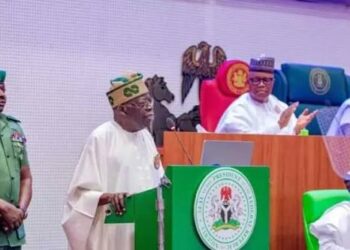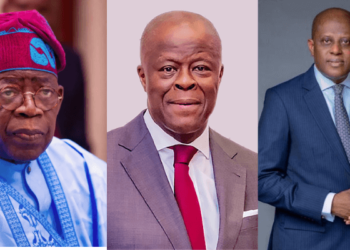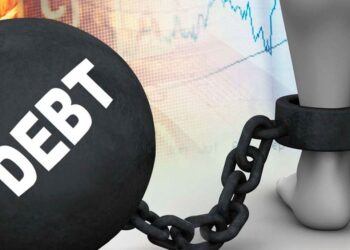The nation’s currency continues with its poor outing against major international currencies, particularly, dollar as the exchange rate between it and the greenback has fallen to a record low on the black market, trading at a minimum of between N740 and N742/$1 on Monday morning.
This is according to interactions with black market operatives by metrobusinessnews.com.
The naira fell against the US dollar by 1.5% from an average of N731/$1 recorded last week Friday.
The depreciation of the naira is due to the increased demand for the dollar amidst continuous shortages.
The development has continued to leave sour tastes with bank customers, basically, importers and parents either wishing to pay their ward’s school fees abroad or those wishing to import raw materials for their companies.
It has been endless wait and promises from their banks, who ration rediculous amount of dollars after being on the queues for over two months.
Some analysts say the rate is the highest on record, indicating a market differential of N300.62/$1 between the official market, hovering between N442 and N450/$ and the parallel market.
According to Bismarck Rewane and his think tank, in the current Lagos Business School Breakfast communique, “The Nigerian Naira has been battered, abused, misused and disused.
This is despite efforts by the Central Bank of Nigeria (CBN) through interventions.
But, it is still struggling to stay afloat and like most frontier currencies, it has lost 8% of its value in one month before recovering to N735/$.“
Commenting further, he saidWe think that the CBN will now defend the Naira with its resources which are limited to keep it trading within the range of N710 – N740 in October.
This is because the oil revenue from the newly fixed western pipeline will almost guarantee a minimum of an additional $700m per month from October.“
CBN increased the monetary policy interest rate to 15.5% last month from 14% in a bid to tame the rising inflation in the country, which reached a 17-month high in August 2022, largely due to the global energy crisis and depreciating exchange rate.
As the nation awaits the release of the CPI report for September by the NBS any moment from now, (timetable says October 15), some analysts are projecting another increase in headline inflation to 20.9%.
“ It is worth noting that the pace of price increase is slowing. This might suggest that the price inflation may be approaching a point of inflection. Our study also indicates that there will be an increase in both the annual food (23.9%) and core (17.78%) sub-indices. The major causative factors propping up the price level, remain the “usual suspects” i.e., a weaker domestic currency (N732/$), higher logistics costs and excess liquidity,“ Bismarck said in the current Economic Bulletin.
However, the exchange rate at the official Investors and Exporters window closed at N442.5/$1 on Friday, 14th October 2022, an appreciation compared to the closing rate of N450/$1 recorded in the previous week.
A total of $303.03 million in FX value was traded at the official market last week, compared to $379.1 million that exchanged hands in the previous week.
The highest daily forex turnover was recorded on Wednesday, 12th October, when a sum of $95.39 million exchanged hands.
ALSO READ:CBN Bars DMBs From Access To Discount Windows, BoE Creates Support Facilities
CBN continues to intervene in the official market to manage exchange rate volatility in the market, which has strained the country’s external reserve amidst dollar shortages in the economy.
CBN continues to intervene in the official market to manage exchange rate volatility in the market, which has strained the country’s external reserve amidst dollar shortages in the economy.
According to data from the CBN, Nigeria’s foreign reserve has already lost over $2.6 billion year-to-date to stand at $37.91 billion, from over $40 billion recorded as of the end of last year.












